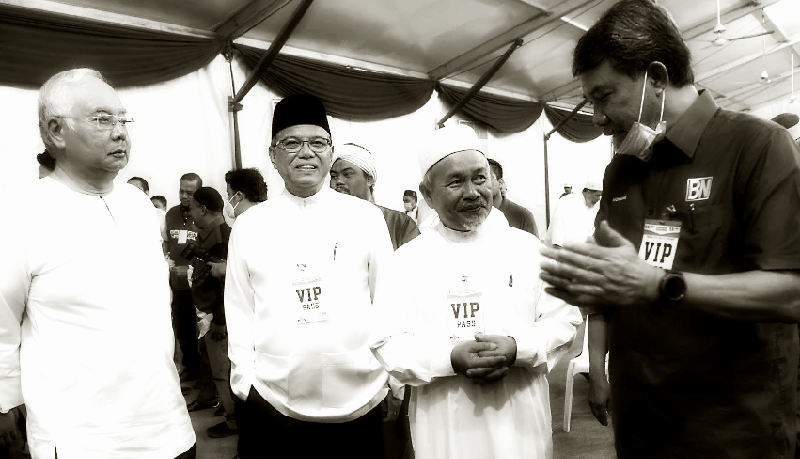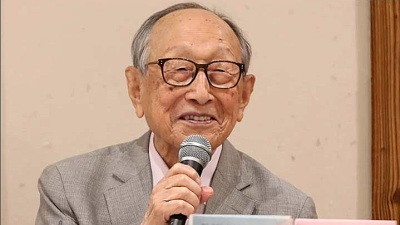By Lim Sue Goan, Sin Chew Daily
The Chini by-election shouldn't have aroused much enthusiasm in the first place, as the outcome was not going to be a surprise to anyone at all.
But given the chaotic political situation of the country today and the uncertain future of Perikatan Nasional, the by-election result does offer some clue to what is to come.
First and foremost, the landslide victory shows that Umno and PAS can absolutely abandon PPBM, which only started to campaign for the Umno candidate after PN leaders' meeting on July 1, making the Umno-PAS "Muafakat Nasional" the major player during the campaign period. So the victory should belong to Umno-PAS, not so much because of Muhyiddin's clout.
It was a three-cornered fight in Chini in the 2018 general elections, where Umno, PAS and PKR won 10,027 votes, 5,405 and 1,065 votes respectively. In last week's by-election, Umno's candidate Mohd Sharim Md Zain clinched 13,872 votes, a gain of 3,845 with a 5% lower turnout. This shows that PAS supporters gave their votes to Umno although some opted to absent themselves form the polling stations.
Generally speaking, after this by-election, Umno and PAS grassroots will have gradually reduced resistance against the two parties' tie-up. Mohd Fadhil Noor Abdul Karim, the PAS candidate defeated in GE14, campaigned fiercely for Umno's candidate this time round. If the votes for both Umno and PAS can be more seamlessly integrated, "Muafakat Nasional" will be almost invincible in Malay rural constituencies and can most definitely go without PPBM!
Secondly, Umno is still very much controlling the Felda settlements. 90.26% of the voters in Chini state constituency are Malays, only 0.39% are Chinese, 0.09% Indians and 9.26% others. Most of the voters are in the 30-39 age bracket, at 38.96%, and 83% of them from Felda settlements. These settlers have contributed positively to Umno's decisive victory.
Umno-PAS's strategy has worked perfectly well here. Najib has refrained from putting his son Mohd Nizar there but has instead supported second generation settler Mohd Sharim with the hope of winning the settlers' votes. Similar strategy was previously applied with much success in Cameron Highlands. Retired Orangasli police officer Ramli Mohd Nor had an impressive win in a constituency with 22% Orangasli electorate.
There are altogether 54 parliamentary seats with significant settler populations. If winnable candidates are fielded, Umno has very bright chances of winning back the federal administration in the next general elections.
Thirdly, BN has reversed its gloomy destiny by winning the Chini by-election under the BN banner again. Winning six of the 11 by-elections has given BN a remarkable boost.
Umno leaders are now flushed with confidence, giving them less reason to support the registration of PN as a formal political alliance and another good reason to continue using the BN logo in GE15.
Fourthly, Mahathir's influence in Malay rural areas is weaker than anticipated. Independent candidate Tengku Zainul Hisham, former Pekan divisional deputy chairman of PPBM who had the full backing of the former prime minister, only managed to clinch 1,222 votes, his deposit forfeited.
This shouldn't have happened if Mahathir still has some clout among rural Malays.
Fifthly, Najib is back to Umno's power center. Although he resigned as Umno president after the 2018 general elections, he has been working very hard to maintain his momentum and has been actively campaigning for Umno's candidates.
Chini is a state seat under Pekan parliamentary constituency. As the MP for Pekan, Najib was campaigning real hard and had even applied to have his 1MDB hearing postponed so that he could go back to his constituency.
Najib has proved that he is still hugely popular in the Malay society and therefore it is impossible to completely exclude him in Umno's any future power realignment exercise.
BN leaders have attributed the landslide win in Chini to "Muafakat Nasional", and have even made it the campaign model for the 15th general elections. We have yet to see whether this will eventually affect the PN party leaders' verbal agreement to continue supporting Muhyiddin as PM, but this "alliance within alliance" phenomenon is definitely not a healthy sign for the ruling coalition.
Judging from existing environment, the Umno-PAS alliance is set to dictate the future of this country even though the two parties have not come up with a more explicit governing philosophy. Many begin to worry if these two parties get to decide federal policies in future, how are they going to revitalize the ailing economy and preserve the existing racial, religious and social harmony, after PAS-led Terengganu has implemented gender segregation measure for cinema-goers in the state?
After more than three months, PH has finally returned to its earliest decision of supporting PKR president Anwar Ibrahim as the pact's PM candidate. Now that PH is in the opposition, it should not just play checks and balances role on PN but must also conceive ways to effectively check the advances of "Muafakat Nasional", which is PH Plus's biggest rival in future, not PPBM.
An increasingly powerful Umno-PAS alliance is akin to the thorn in the flesh of PN, which will eventually cripple the bigger alliance.

ADVERTISEMENT
ADVERTISEMENT


































